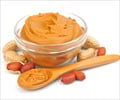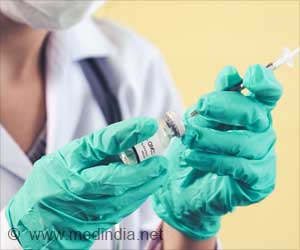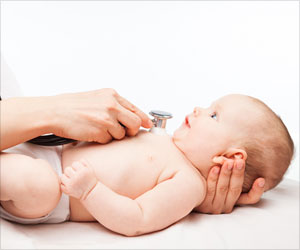Proper amount of nutrition is important for the health of young gymnasts, an expert has suggested.
An expert recommends proper nutrition as essential for the health of young gymnasts.
Most elite gymnasts reach their peak at age 15 or 16, training 20 to 36 hours per week when a body's calorie needs are at its highest.However, in a sport where aesthetics can influence scores, some athletes adopt restrictive eating habits to control their physique.
"The ideal body type is not always the healthiest body type. As both a growing child and athlete, young gymnasts have elevated nutritional needs that must be met despite constraining schedules and the pressure to stay lean," said Sotiria Tzakas Everett, registered dietitian and staff nutritionist at the Women's Sports Medicine Center at Hospital for Special Surgery.
Studies show that the average Body Mass Index (BMI), body fat percentage and daily energy intake of gymnasts are lower than those of non-gymnasts.
Unfortunately, this behavior can lead to severe physical and psychological complications.
Everett has warned that gymnasts might develop unhealthy body images and experience lethargy, poor performance, frequent stress fractures and disorders such as amenorrhea.
Advertisement
Everett has emphasized the role that coaches, trainers and parents can play in ensuring that young gymnasts receive the proper amount of nutrition.
Advertisement
Be sure gymnasts understand the importance and role of carbohydrates, protein, calcium and other nutrients. Education is critical.
Calorie intake varies with a gymnast's skill level, weight and age. Be cognizant of how a gymnast's calorie needs will evolve over time.
Be on the lookout for dips in energy levels, weight changes, altered moods and frequent stress fractures. These are all symptoms of undernourishment.
Flag gymnasts with suspicious eating behavior for a nutritional, medical and psychological evaluation.
Minimize focus on weight and body types. Instead, find a positive way to address proper nutrition by positioning food as a source of fuel and energy.
Conduct nutritional assessments and encourage gymnasts to keep food diaries. Based on your findings, recommend easy ways to add calories, such as drinking a cup of chocolate milk or eating an energy bar.
Talk to your athletes-they are your greatest resource and can tell you which foods work best for them prior to, during, and after practice and competition.
Make time for nutrition-take regular snack breaks and host weekly team dinners to instill healthy habits and routines.
Everett recently presented on proper nutrition for the young gymnast at Special Surgery's 12th Annual Sports Medicine for the Young Athlete Symposium in New York.
Source-ANI
TAN














